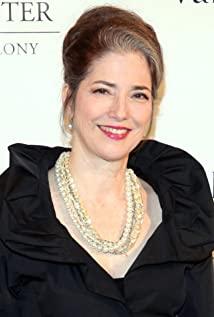French actress Isabel Huppert with outstanding acting ability often plays some roles whose inner world is different from ordinary people, and the interpretation is very wonderful, shaping many famous images in film history. , Such as Erica in "The Piano Teacher". Hupel believes: "Film is a tool to explore the truth, actors need to participate in it to give depth to the role they play. I use the film director as the criterion for choosing my film, and share common concerns with them." And she Choosing to appear in his third film "Louder Than Bombs" directed by Norwegian director and screenwriter Joachim Tier may be based on her criteria.
Speaking of Joachim Tyre, he will mention his last film "Oslo, 31. august". The two films have the same line of style, and they are both suppressed. Gloomy, the inner drama is delicate and deep, full of tangled and broken emotions. The difference is that the ultimate pain in Oslo seems to belong to alone, as in an autistic world that cannot enter the outside world anyway. , And the pain of "Far from the Cannon Fire" belongs to everyone and the family. There is an inevitable connection between family members. Even if you want to exclude each other from your own life, it is futile. The same thing you have experienced involves The eight meridians of their odd meridians, this is the knot that cannot be avoided and circumvented. If this film is regarded as the follow-up of Oslo in style, it is not unreasonable.
It seems that Tyre has been deeply influenced by French filmmakers. This is already reflected in his presentation of the streetscape of Oslo. This time his narrative environment has been changed to the United States on the other side of the ocean, but he still has his good style expression methods. , Even the very American middle school campus and big party after class were presented by him differently from the American custom, with a quiet tone and an extension of the mood, as well as inexplicable pain, and of course, it also has the characteristics of global adolescence.
The film has intriguing details and subtle fluctuations in psychological performance. The pain and inner world of the three male family members in the film change due to the eternal absence of female members who are vital to them, Banana Yoshimoto said "We are very fragile in front of pain. We are afraid that it will come too violently. We are afraid that it will destroy itself in an instant, and there will be no wreckage left. So we suppressed and did not dare to let the pain out, so we could only let it carefully. Release it a little bit.” Fate did not give this family a chance to relieve and accept the pain. They encountered a head-on blow, but they needed to release the pain slowly.
Facing sudden changes in the family, families of different ages and estranged relationships have their own interpretations and behavior patterns. The younger son wrote the black attitude of "I don’t bother you, don’t bother me" on his face. The son happily joined the work of cleaning up old things to escape the discomfort and pressure brought by his own small family. The father tried to maintain the daily life of the family, tried to solve the estrangement between his adolescent son, and tried to cover up his life. Some of the secrets and disharmony of...
Philip Rose said: "Life is about misunderstandings, misunderstandings, misunderstandings, and misunderstandings. After careful consideration, we still misunderstand. In this way, we understand our existence: we are wrong. It may be best to forget about it. The right and wrong of others, everything goes with the flow. If you can do this-well, you will be lucky." If you really misunderstand, you may be really lucky, but the truth is often eager to try and come out, and always It is not lovable, living under the same roof as you, but not necessarily knowing each other. The daily life of flowing water has seemingly gentle cruelty, and its lethality is even stronger than that of artillery.
Perhaps by the end of the film, the man who went out in the car to meet the dawn more or less understood their lost Laura, why the famous and maverick war photographer stubbornly chose such a life track. What kind of mood does she have in such a harsh life trajectory, and why does her life have such an ending...
"You can't find happiness in finding the meaning of life. Meaning is only the third most important thing. It ranks in After love and existence." (Matt Hager)
(Magazine draft)
View more about Louder Than Bombs reviews











